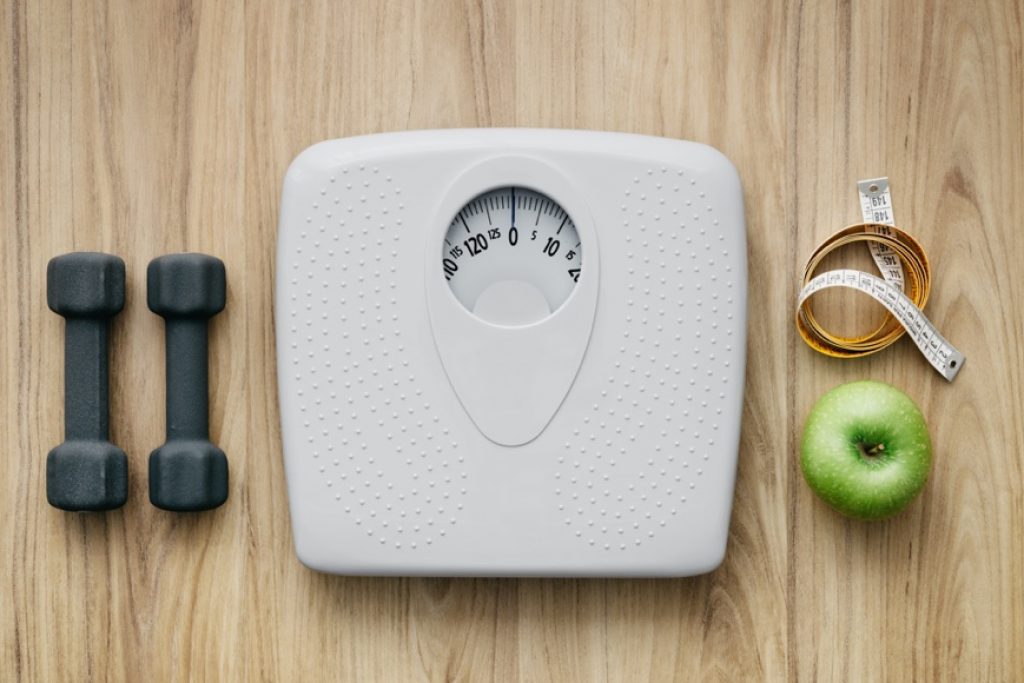
Whether you’re trying to lose five pounds or 50, weight loss can be incredibly frustrating. Especially these days, when everyone you meet, or read about online, seems to have a different opinion on the best way to go about shedding extra pounds.
Some people will tell you that you can only lose weight by buying those meal replacement shakes they’re hawking online. Others will tell you download some new fitness app, follow it, and the weight will fall right off!
If you’ve tried diet after diet and never seen success, keep reading. Listed below are four of the biggest weight loss myths that you need to stop falling for if you want to see results.
1. Only Calories Count
Do calories matter when you’re trying to lose weight? Of course. But, are they the end-all-be-all? Nope.
A calorie is a measure of energy, and all calories have the same energy content. But, there’s a lot more to food than just the number of calories in them.
The body uses different metabolic pathways to process different types of food, and these pathways have different effects on the hormones that help regulate weight and feelings of hunger and satiety.
For example, calories that come from protein are much more satiating than calories that come from carbohydrates. You’re going to feel fuller longer after eating a chicken breast than you will after eating a cookie.
Calories that come from the same type of macronutrient also have varying effects on the body. For example, a piece of fruit is going to be more satisfying and provide more nutritional benefits than a bag of your favorite candy.
2. Eating Fat Will Make You Fat
Fat has gotten a bad rap for a long time, for no good reason. In fact, the “studies” from the 1950s that demonized fat (especially saturated fat) and claimed it clogged the arteries and contributed to heart disease have been debunked.
Fat is an essential macronutrient, meaning the body needs it to function properly. Among other things, fat plays a major role in brain health, hormone production, and the production of cell membranes.
Now, before you run out and order a cheeseburger and fries, it’s important to remember that, in the same way that not all carbs are created equal, not all fat sources are equally good for the body.
It’s important to seek out healthy fat sources such as extra virgin olive oil, avocados, nuts, and seeds.
3. All You Need to do is Eat Less and Move More
Many people try to simplify weight loss by saying that all you need to do is exercise more and decrease the number of calories you’re consuming. There is some truth to this, of course. If you’re eating fewer calories than your body is burning, you will lose weight.
The problem with this approach though, is that many people take it to an extreme and end up slowing down their metabolism as a result. By not fueling themselves properly and placing greater physical demands on it, they train their bodies to burn fewer calories. As a result, their weight loss plateaus, or they may even gain weight back. Many CrossFit Games athletes eat up to 7-8 meals a day! So eating plenty of food isn’t bad, as long as you are fuelling your body with the right nutrients.
When you’re trying to lose weight, it’s important to monitor your body and take note of slow metabolism symptoms. Even if you’re seeing the number on the scale go down, if you’re also experiencing lethargy, hair loss, or feelings of weakness, your body could be sending you a warning message.
4. You Need Lots of Supplements
There is a massive industry out there dedicated to peddling powders and pills to people who are trying to lose weight. In reality, though, the majority of these supplements will have no effect at all on your weight loss efforts.
You absolutely do not need supplements to successfully shed excess weight. The supplement industry is largely unregulated, meaning that most of what you see online or on store shelves are filled with questionable ingredients that won’t get you closer to your goals. If you want a natural supplement that truly works, resurge review gives the right choice for you.
Save your money and dedicate what you would have spent on supplements to whole, nutrient-rich foods (fruits, vegetables, healthy fats, high-quality proteins, etc.) instead.

















Follow Us